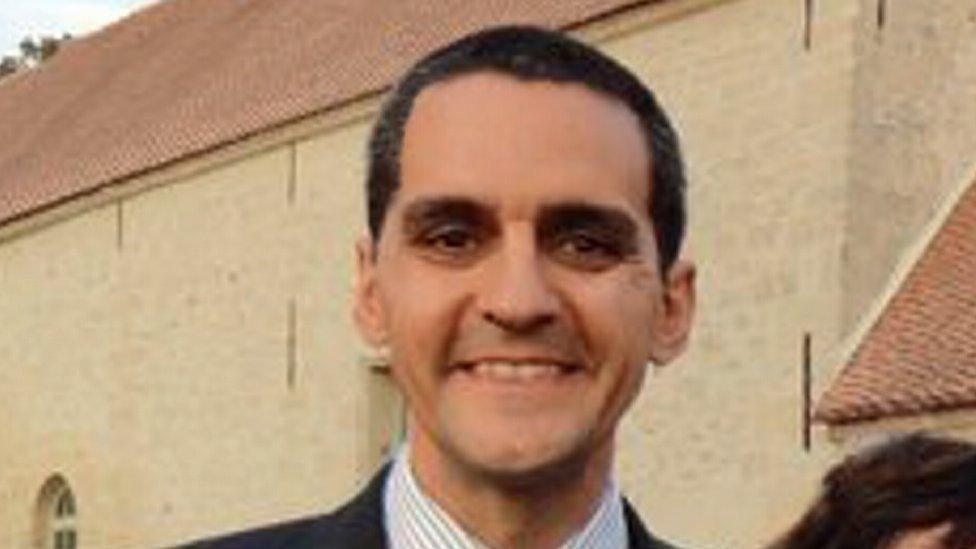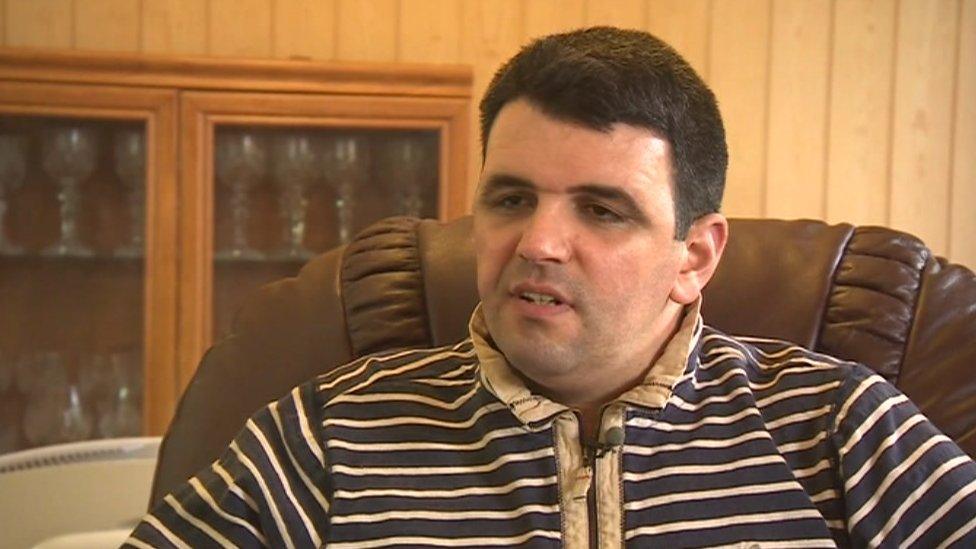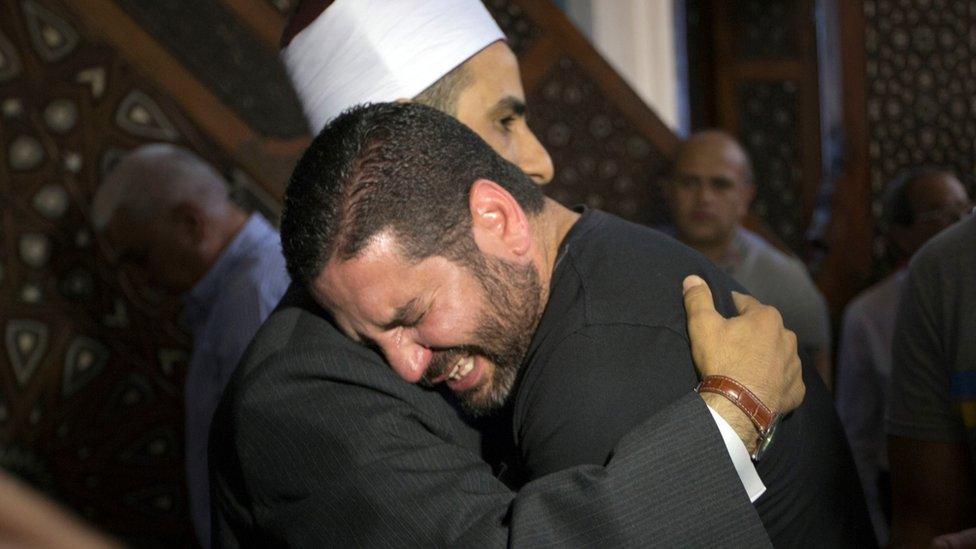Plane deaths inquest scheduled 9 years after crash

Richard Osman, 40, was one of 66 people who died after a plan heading for Egypt went missing near Greece
- Published
An inquest into the death of a man who was killed along with 65 others in a plane crash is set to finally go ahead - nearly a decade later.
Richard Osman, who grew up in Carmarthen, was on EygptAir flight MS804 when it vanished in May 2016.
The 40-year-old geologist was travelling from Paris to Cairo, where he was due to spend a few days on business, when the plane plunged into the Mediterranean.
The Egyptian authorities said at the time they would not be participating in a UK inquest because of an ongoing criminal inquiry - but the hearing into what happened has now been provisionally set for May.
Welsh man on crashed EgyptAir flight
- Published19 May 2016
Crashed flight family 'awaiting news'
- Published20 May 2016
'Years to find out crashed flight cause'
- Published29 September 2017
Coroner Mark Layton was told at the pre-inquest hearing in Haverfordwest, Pembrokeshire, on Friday that an expert's report was ready and so the inquest could proceed.
But he said he would avoid the anniversary date.
Questions for the expert will be put in writing ahead of the inquest, which is likely to take three to four hours, the coroner added.
The family's solicitor, Peter Neenan, thanked the coroner for his "diligence and hard work" to get to this point.
The night-time flight in May 2016 went missing after it entered Greek airspace.
It later emerged that smoke had been detected in the toilet and the avionics area, which contained the aircraft's electronics and computer below the cockpit.
France's civil aviation accident bureau (BEA) said in July 2018 that "the most likely hypothesis is that a fire broke out in the cockpit".
The flight disappeared from Greek radar and the area in which it crashed is one of the deepest in the Mediterranean - more than 3,000m (9,800ft) in some parts.
Wreckage and life jackets were found in the sea 230 miles (370km) south of the Greek island of Crete.
Mr Osman held a masters from Camborne School of Mines in Cornwall and was a mining company executive for Centamin in Jersey, where he was living with his wife Aureilie and their daughter at the time of his death, having previously worked in Australia and Egypt.
Related topics
- Published20 May 2016

- Published20 May 2016

- Published23 May 2016
